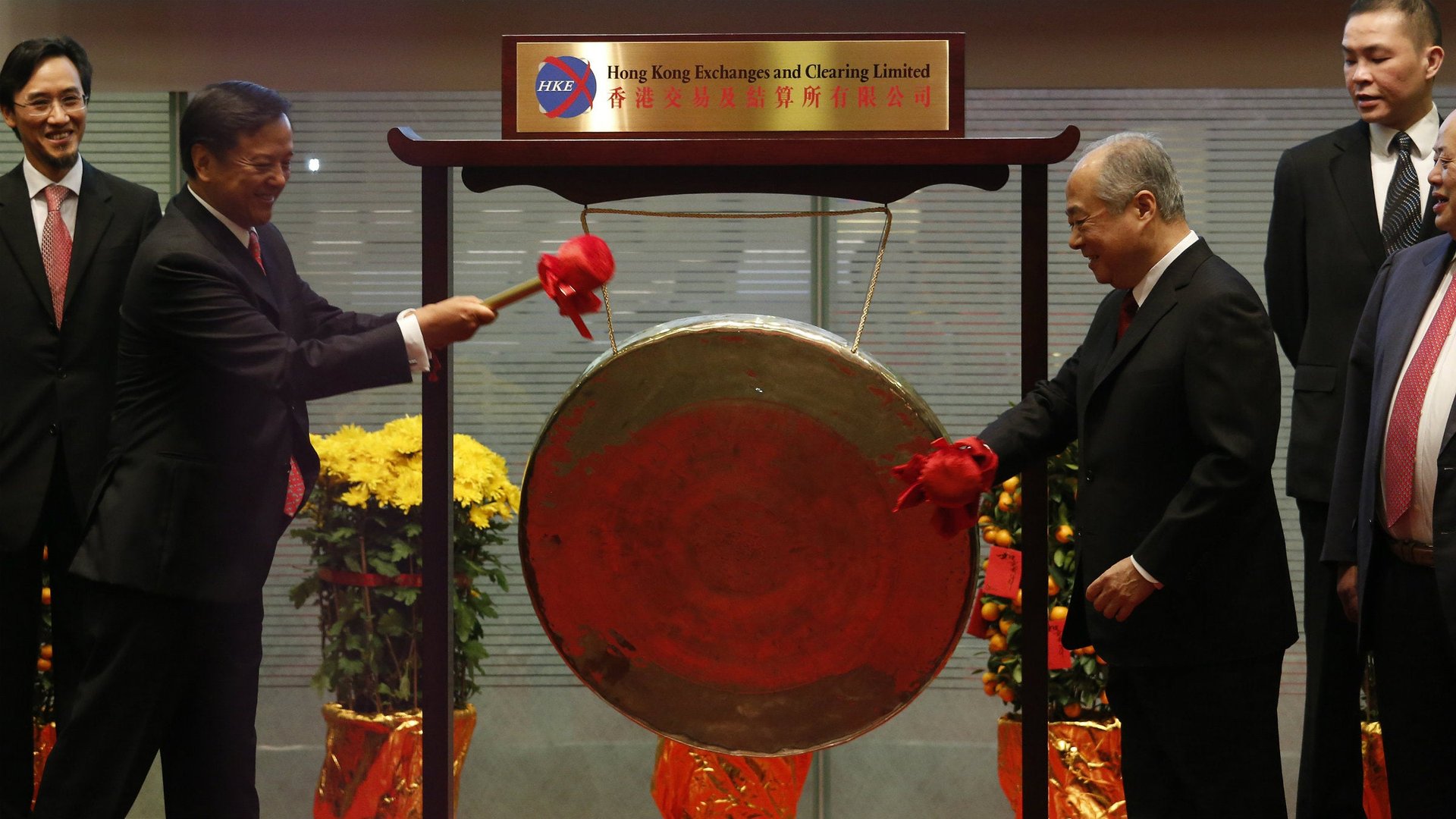Asia’s largest IPO this year is the latest sign that Chinese investors are ignoring reality
China’s stock markets have become completely detached from economic fundamentals in recent months, and that insanity is rapidly spilling into Hong Kong’s Stock Exchange. The latest evidence of irrational exuberance comes from the $3.6 billion IPO of GF Securities, a Chinese broker whose stock started up 40% in its Hong Kong trading debut today, in Asia’s largest listing this year.


China’s stock markets have become completely detached from economic fundamentals in recent months, and that insanity is rapidly spilling into Hong Kong’s Stock Exchange. The latest evidence of irrational exuberance comes from the $3.6 billion IPO of GF Securities, a Chinese broker whose stock started up 40% in its Hong Kong trading debut today, in Asia’s largest listing this year.
Thanks to more IPOs in China and investor money pouring into stocks, GF Securities expects net profits to double from to between 2.5 and 2.6 billion yuan (about $420 million) for the first quarter of this year—that’s about $70 million more than Charles Schwab’s latest quarterly net profit.
GF, China’s fourth largest broker by assets, already trades on the Shenzhen Stock Exchange, but its shares in Hong Kong were initially priced at a significant discount to the Shenzhen price, attracting mainland investors. Mainland demand for Hong Kong stocks is so high, the Hong Kong exchange is considering raising quotas to allow more investors in, the exchange’s chief executive said Friday.
Despite the froth in the China’s stock market—including signs of a tech bubble that puts the 1990s dot com boom to shame—economic news on the ground in mainland China is grim.
Kenneth Hoffman, a Bloomberg Intelligence metals analyst who just finished traveling across China, saw a country of “idle cranes, empty construction sites and half-finished, abandoned buildings in several cities.” A government planning official said last November that nearly $7 billion in “ineffective investment” had been wasted in the past five years alone. And a growing pile of “white elephant” projects include an airport redevelopment project in Changhai that is worth more than 1 billion yuan, but that almost nobody uses, Reuters reports:
On a recent Wednesday morning, the airport’s ticket counter was deserted apart from a female airport official. Still, its speckled grey marble floors were scrubbed shiny by a cleaning attendant, while the toilets were spotless.
“Call in two to three days to check if there’s a flight,” the official told Reuters. “The plane’s under maintenance.” A male colleague sat next to the baggage screening machine, head bent towards his knees, seemingly falling asleep.
Such projects have signaled alarm bells to analysts and economists in recent months, as Quartz reported last year. Take the wanna-be Manhattan replica neighborhood of Yujiapu in the city of Tianjin, which was supposed to be a rival to financial center Shanghai, but instead resembles an abandoned movie set.
That hasn’t slowed down the state-owned company behind the building, Tianjin Binhai New Area Construction and Investment Group. After six years of construction, it recently opened a costly new tunnel connecting the empty neighborhood to the rest of the city.
In fact, despite official warnings of a slowing economy, and signs on the ground that China’s economy may be stumbling hard, betting against the country’s publicly-traded companies and the economy overall has been brutally painful for China bears. That’s because millions of investors, many with a high school education or less, are fueling the markets’ rise.